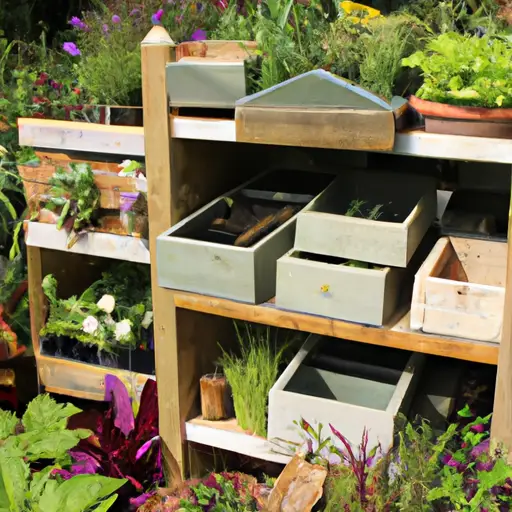Container gardening is a popular trend among green thumbs and urban dwellers alike. It allows individuals to exercise their love for plants and gardening, even in limited spaces. Whether one has a balcony, rooftop, or small backyard, container gardening offers a plethora of benefits that can turn anyone into a green thumb. In this article, we will explore the various advantages of container gardening and why it is truly a delight for those who embrace it.
One of the most significant benefits of container gardening is its flexibility and adaptability. Unlike traditional gardens that require ample space and specific soil conditions, container gardening allows individuals to create a garden virtually anywhere. One can use pots, planters, or even repurpose various containers such as buckets or barrels to grow plants. This means that people living in apartments or urban areas with limited outdoor space can still enjoy the joys of gardening.
Container gardening also provides the opportunity to exercise creativity in terms of design and aesthetics. With a wide range of containers available in different sizes, shapes, colors, and materials, gardeners can experiment with various combinations to create visually appealing displays. From terracotta pots to hanging baskets and repurposed crates, each container adds its own unique touch to the garden. This artistic aspect of container gardening enhances the overall appeal of any outdoor space.
Another advantage of container gardening is its versatility in plant selection. With traditional gardens, one must consider factors such as soil type, sunlight exposure, and climate suitability for each plant species. However, when growing plants in containers, gardeners have more control over these conditions. They can choose plants that thrive well together in specific environments and adjust accordingly by moving them around as needed.
Container gardens are ideal for growing herbs, vegetables, flowers, succulents – virtually any type of plant one desires. This opens up endless possibilities for culinary delights with fresh herbs at hand or adding vibrant colors through an array of blooming flowers.
In addition to flexibility and versatility, container gardening also offers practical advantages. One significant benefit is the ability to manage soil quality and drainage easily. Containers allow gardeners to have complete control over the soil composition, ensuring an optimal environment for plants to flourish. This is especially beneficial for those living in urban areas with poor-quality soil or contaminated land.
Containers also provide better drainage compared to traditional gardens, preventing waterlogging and root rot. Properly designed containers with drainage holes allow excess water to escape, ensuring healthier root systems and overall plant growth. Furthermore, this ability to control water levels makes it easier to manage watering needs and conserve water.
Container gardening also presents a more manageable way of maintaining a garden. With a traditional garden, tasks such as weeding and pest control can be time-consuming and physically demanding. However, container gardens are generally smaller in scale, reducing the amount of effort needed for maintenance. Weeding becomes less of a chore as containers provide defined spaces where unwanted plants can easily be removed.
Similarly, controlling pests and diseases is more manageable in container gardening. Since plants are contained within individual pots or planters, any potential issues can be addressed promptly without spreading throughout the entire garden. This significantly reduces the need for harmful pesticides or herbicides.
For those concerned about accessibility, container gardening offers a solution by minimizing physical strain on the body. The elevated height of containers eliminates the need for bending down or kneeling on the ground when tending to plants. This makes it an ideal option for individuals with mobility issues or limited flexibility who still wish to enjoy gardening.
Beyond these practical benefits, container gardening also has positive environmental impacts. It allows individuals to grow their own produce, reducing reliance on store-bought items that require transportation and packaging. Container gardens also promote healthy ecosystems by attracting pollinators such as bees and butterflies.
Furthermore, container gardening encourages recycling and repurposing. Instead of disposing of old containers or household items such as buckets or tins, they can be transformed into unique planters. This helps reduce waste and gives a new life to items that would have otherwise been discarded.
In conclusion, container gardening provides numerous benefits that make it a green thumb’s delight. Its flexibility, adaptability, and versatility make it accessible to individuals regardless of space limitations or location. The artistic aspect of container gardening allows for creative expression, enhancing the overall appeal of any outdoor space. With the ability to control soil quality, water drainage, and pest management, container gardens are easier to maintain compared to traditional gardens. It provides practical advantages such as accessibility and reduced physical strain while also being environmentally friendly through self-sufficiency and recycling. So embrace container gardening and let your green thumb flourish in this delightful hobby.













